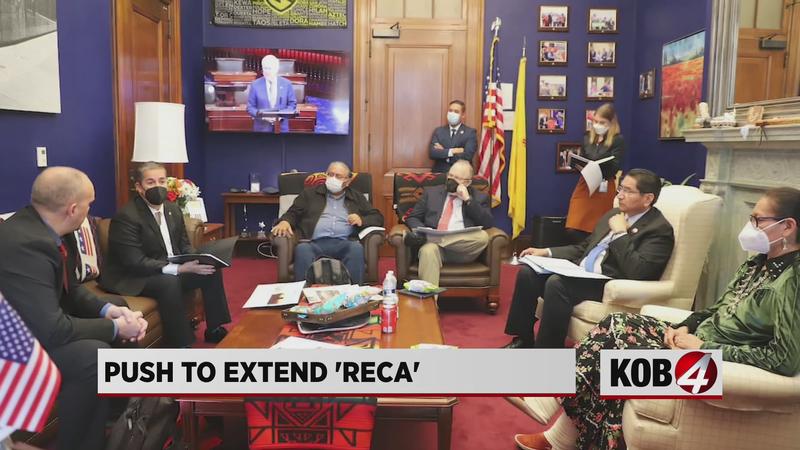Radiation exposure victims seek extension of federal compensation program
ALBUQUERQUE, N.M. — New Mexico has a long history of dealing with radiation exposure – from uranium mines to the Trinity Site. Now a last-minute push is underway to continue a federal radiation victim compensation program.
"I was an underground miner," said Phil Harrison, the president of the Uranium Radiation Victims Committee. "I was given a shovel to clear the tracks, grease the fat and help drillers."
According to Harrison, he and many others are now battling illnesses brought on by radiation exposure decades after working in the mines.
"There was absolutely no warning and many others have been through the same thing," Harrison said.
KOB 4 previously highlighted the impact uranium mining has had on the Navajo Nation. With over 500 abandoned mines dotting the reservation, many communities are dealing with the fallout.

Now, Harrison and many others are on a mission to ensure those affected are not forgotten.
"Many of my people are going through cancers not heard of in the 1940s, ’50s and ’60’s," Harrison said.
The Radiation Exposure Compensation Act – or RECA – was signed into law in 1990. RECA set up a program that compensates some affected people up to $100,000 but the program sunsets this July.
Navajo Nation President Jonathan Nez has been vocal on Capitol Hill about extending RECA and expanding it for more people to include post 1971 mine workers. President Nez has also discussed increasing the pay and streamlining the process.
"The current RECA, you have to jump through so many hoops in order to verify that you were impacted by the uranium," President Nez said.
The Tularosa Downwinders, who live near the Trinity Test Site, are ineligible in the current program. However, they say their families are also dealing with the effects of radiation exposure.
Fortunately, there is new hope for them.
A bipartisan push in Congress and recently-introduced legislation may include the Downwinders. The U.S. Senate also unanimously passed a bill to keep the program for the next two years and it will now head to the U.S. House.